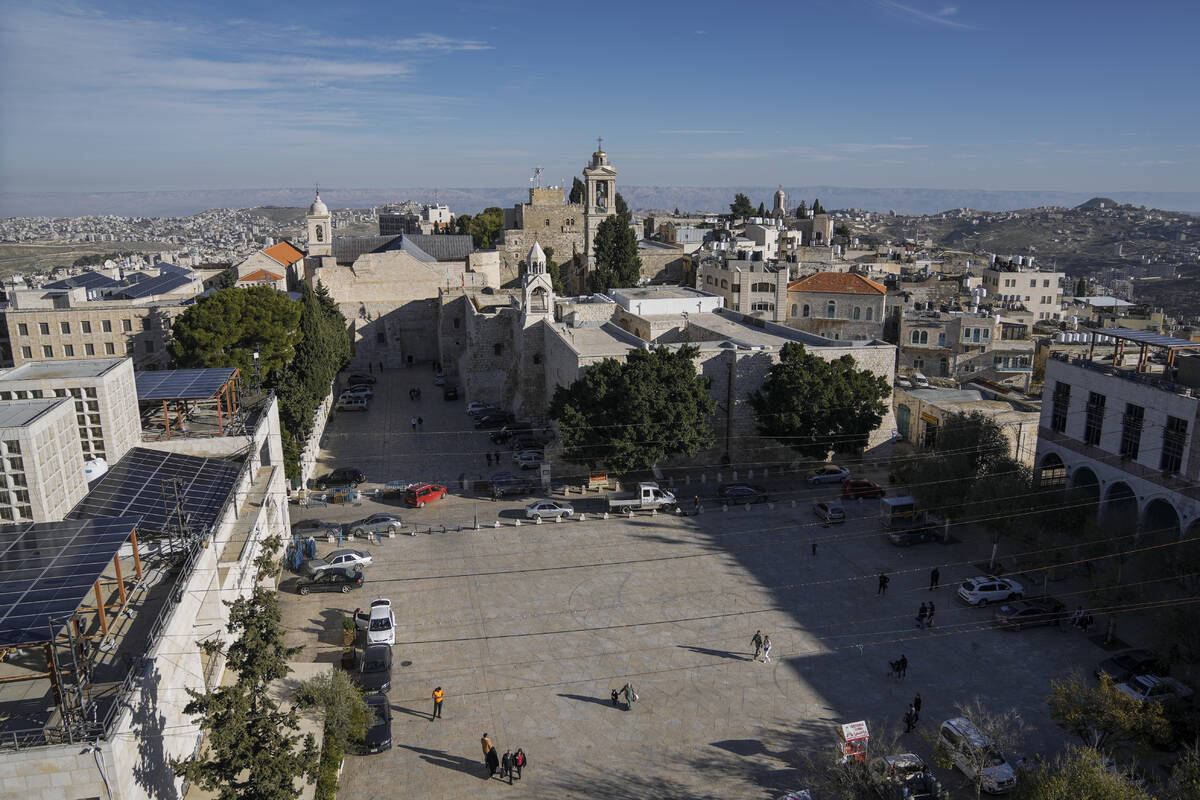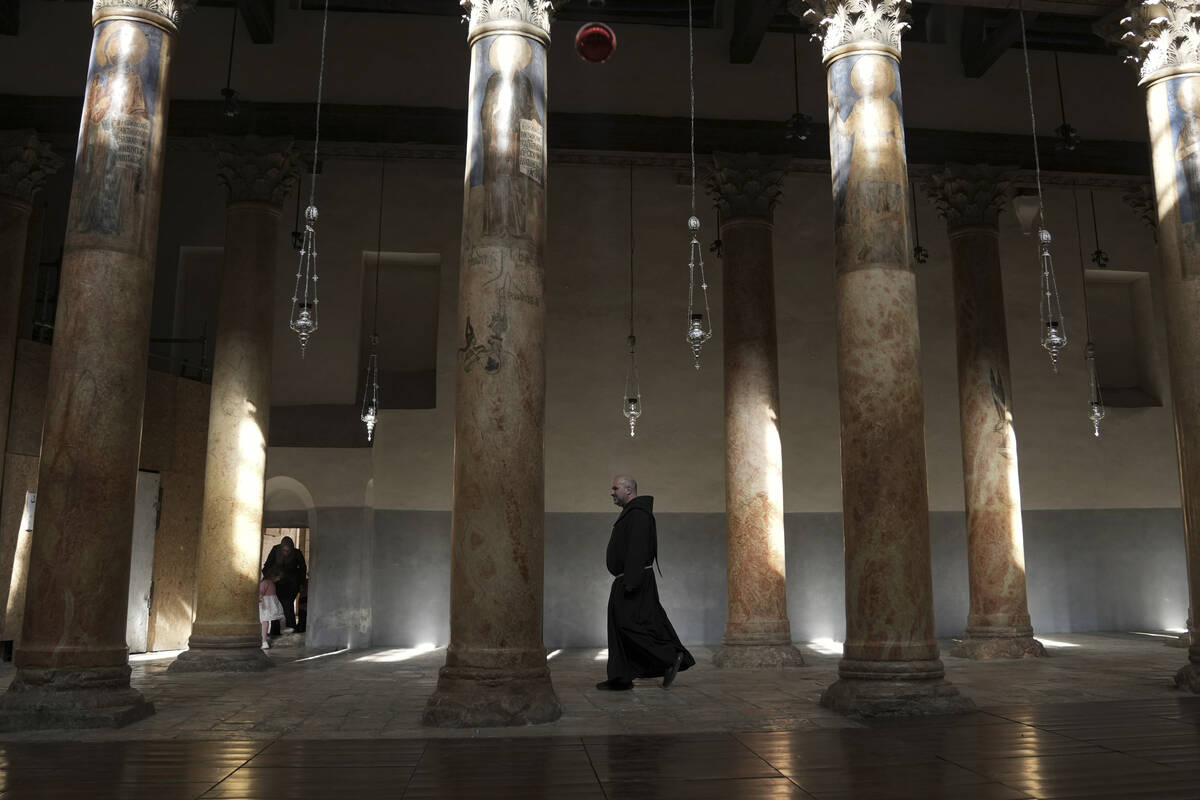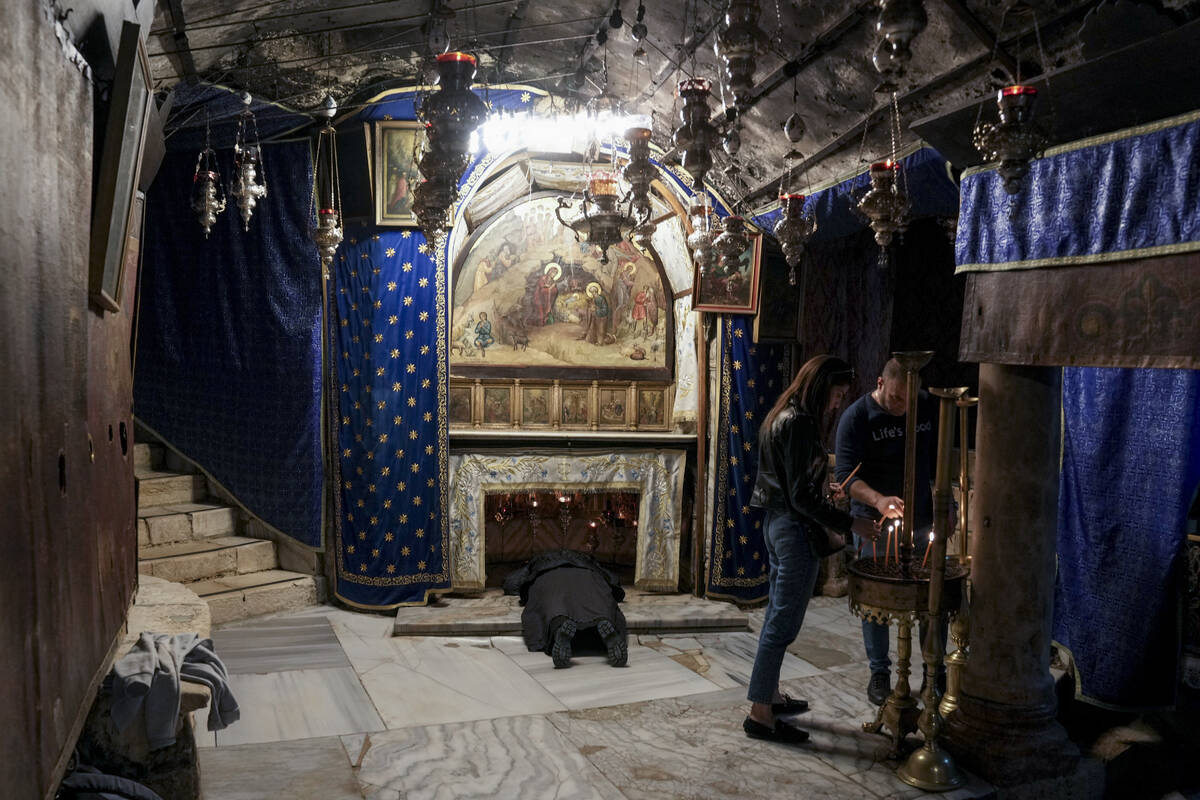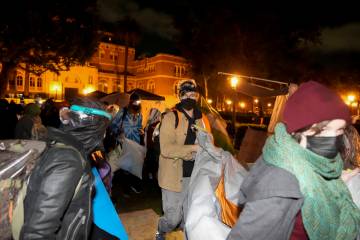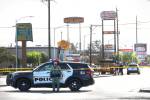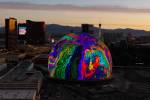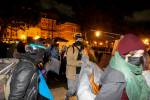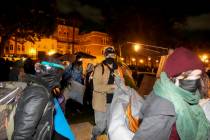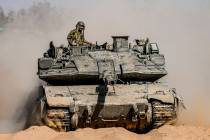Amid Israel-Hamas war, Jesus’ traditional birthplace gears up for a subdued Christmas
BETHLEHEM, West Bank — Bethlehem is gearing up for a subdued Christmas, without the festive lights and customary Christmas tree towering over Manger Square, after officials in Jesus’ traditional birthplace decided to forgo celebrations due to the Israel-Hamas war.
The cancellation of Christmas festivities, which typically draw thousands of visitors, is a severe blow to the town’s tourism-dependent economy. But joyous revelry is untenable at this time, Mayor Hana Haniyeh said.
“The economy is crashing,” Haniyeh told The Associated Press on Friday. “But if we compare it with what’s happening to our people and Gaza, it’s nothing.”
Since Oct. 7, access to Bethlehem and other Palestinian towns in the West Bank has been difficult, with long lines of motorists waiting to pass military checkpoints. The restrictions have also prevented many Palestinians from exiting the territory to work in Israel.
City leaders fret about the impact the closures have on the small Palestinian economy in the West Bank, already struggling with a dramatic fall in tourism since the start of the war. The Palestinian tourism sector has incurred losses of $2.5 million a day, amounting to $200 million by the end of the year, the Palestinian minister of tourism said.
The yearly Christmas celebrations in Bethlehem — shared among Armenian, Catholic and Orthodox denominations — are major boons for the city, where tourism accounts for 70 percent of its yearly income. But the streets are empty this season.
With most major airlines canceling flights to Israel, over 70 hotels in Bethlehem have been forced to close, leaving some 6,000 employees in the tourism sector unemployed, according to Sami Thaljieh, manager of the Sancta Maria Hotel.
“I spend my days drinking tea and coffee, waiting for customers who never come. Today, there is no tourism,” said Ahmed Danna, a Bethlehem shop owner.
Haniyeh said that while Christmas festivities have been canceled, religious ceremonies will take place, including a traditional gathering of church leaders and a Midnight Mass.
“Bethlehem is an essential part of the Palestinian community,” the mayor said. “So at Midnight Mass this year, we will pray for peace, the message of peace that was founded in Bethlehem when Jesus Christ was born.”
The sober mood this year isn’t confined to Bethlehem.
Across the Holy Land, Christmas festivities have been put on hold. There are 182,000 Christians in Israel, 50,000 in the West Bank and Jerusalem and 1,300 in Gaza, according to the U.S. State Department. The vast majority are Palestinians.
In Jerusalem, the normally bustling passageways of the Old City’s Christian Quarter have fallen quiet since the war began. Shops are boarded up, with their owners saying they are too frightened to open — and even if they did, they say they wouldn’t have much business.
The heads of major churches in Jerusalem announced in November that holiday celebrations would be canceled. “We call upon our congregations to stand strong with those facing such afflictions by this year foregoing any unnecessarily festive activities,” they wrote.



